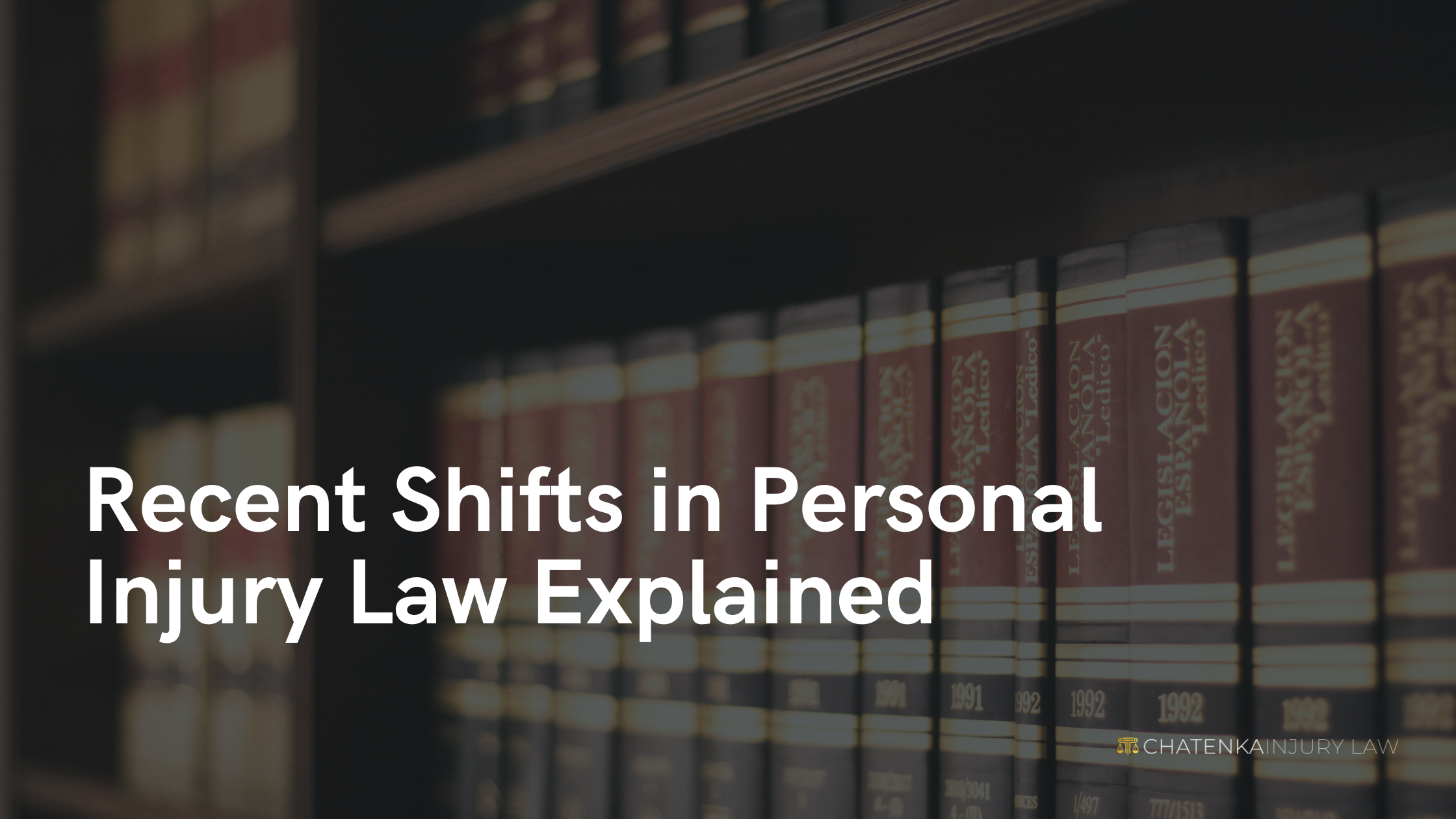Recent Shifts in Personal Injury Law Explained
The Dynamic Nature of Personal Injury Law
Personal injury law is a constantly evolving field, shaped by legislative reforms, judicial decisions, and societal shifts. Recent years have seen significant changes in this area of law, impacting both legal practitioners and individuals seeking compensation for injuries. Understanding these changes is essential for anyone involved in personal injury claims, as it can influence the outcome of cases and the rights of those involved.
Legislative Updates: Key Changes in Personal Injury Law
One of the primary drivers of change in personal injury law is legislative action. Lawmakers regularly introduce new statutes or amend existing ones to address emerging issues and improve the legal framework governing personal injury claims. Recent legislative updates have focused on various aspects of personal injury law, including:
Tort Reform: Many jurisdictions have enacted tort reform measures aimed at limiting the liability of defendants in personal injury cases. These reforms may include caps on damages, restrictions on lawsuits, or changes to the statute of limitations.
Insurance Regulations: Changes in insurance laws can have a significant impact on personal injury claims, particularly in cases involving motor vehicle accidents or medical malpractice. Recent reforms may affect insurance coverage requirements, claims procedures, or the calculation of damages.
Consumer Protection: Legislators may also pass laws to enhance consumer protection and hold negligent parties accountable for injuries caused by defective products or unsafe premises. These laws often provide additional avenues for compensation and impose stricter liability standards on manufacturers and property owners.
Case Law Developments: Precedents Shaping the Legal Landscape
In addition to legislative changes, personal injury law is shaped by judicial decisions that interpret existing laws and establish precedents for future cases. Court rulings can clarify legal principles, expand the scope of liability, or introduce new theories of recovery. Recent case law developments in personal injury law include:
Expansion of Liability: Courts may interpret existing laws broadly to hold defendants accountable for a wider range of conduct. For example, recent decisions may have expanded liability for injuries caused by distracted driving or defective products.
Recognition of New Causes of Action: Judicial decisions can also recognize new causes of action that allow injured parties to seek compensation for previously unrecognized harms. This may include claims based on emerging technologies, environmental hazards, or psychological injuries.
Emphasis on Accountability: In some cases, courts may impose stricter standards of accountability on defendants, particularly in cases involving egregious conduct or willful misconduct. This trend reflects a growing recognition of the need to deter negligent behavior and protect public safety.
Implications for Claimants: How Recent Changes Affect You
For individuals pursuing personal injury claims, understanding the implications of recent changes in the law is essential for maximizing their chances of success. These changes can affect various aspects of the claims process, including:
Eligibility for Compensation: Changes in liability standards or damages caps may affect the amount of compensation available to injured parties. It's crucial to assess how recent changes in the law may impact your claim and adjust your legal strategy accordingly.
Procedural Requirements: Legislative reforms may impose new procedural requirements or limitations on personal injury claims, such as mandatory arbitration or notice provisions. Failure to comply with these requirements could jeopardize your ability to recover damages.
Evidence and Burden of Proof: Recent case law developments may influence the types of evidence admissible in court or the burden of proof required to establish liability. Understanding these changes can help you gather the necessary evidence and build a strong case for compensation.
Navigating the Legal Process: Strategies for Success in the New Paradigm
Given the complexity of personal injury law and the constant evolution of legal standards, navigating the claims process can be challenging. However, there are several strategies you can employ to increase your chances of success:
Stay Informed: Keep abreast of recent changes in personal injury law by consulting reputable legal sources, attending continuing education programs, or seeking guidance from experienced attorneys.
Seek Legal Representation: If you've been injured due to someone else's negligence, don't hesitate to seek legal representation from a qualified personal injury attorney. An experienced lawyer can help you understand your rights, navigate the legal process, and advocate for your interests.
Document Everything: From medical records and accident reports to witness statements and correspondence with insurance companies, thorough documentation is crucial for building a strong personal injury case. Be diligent in preserving evidence and maintaining detailed records of your injuries and losses.
Embracing Change and Securing Justice
Staying informed about recent changes in personal injury law is essential for both legal professionals and accident victims. By understanding legislative updates, case law developments, and their implications for claimants, you can navigate the legal landscape more effectively and pursue fair compensation for your injuries. While the legal landscape may continue to evolve, embracing change and adapting your approach can help you secure the justice and compensation you deserve.


